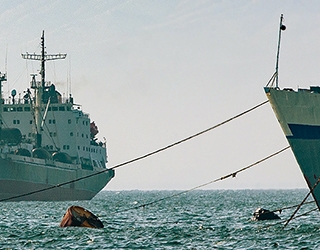C/ Tuset, 20, 4º
08006 Barcelona
SPAIN
Tel. (+34) 93 368 76 68
Fax
info@valls-abogados.es

Tax advice in English and German
Establishment of a subsidiary company in Panama to obtain fishing permits. The risks of this operation due to the country being considered a tax haven until recently.
With the aim of obtaining the fishing permits that Panama offers resident companies, a Spanish company in the sector looked into opening a subsidiary in this country. The objective was to sell the catch brought in by the boats belonging to the Panamanian subsidiary to the Spanish parent company.
Incorporating a company in Panama had at the time a significant drawback – there were practically no formal requisites for it. No paid-in capital is required upon the incorporation of a company, nor later, when the company is already in operation. No minimum capital is required. There is also no requirement to state the names of the company’s partners, so these will not appear in the official register. Besides, the Panamanian company is not required to hold a bank account in Panama or, most importantly, to have premises with staff and material resources in the country.
Additionally, if the company carries out its activity outside of Panama, this activity will be tax-exempt in Panama. These exempt profits are not declared on any tax return, so they will not be visible and, as there is no bookkeeping requirement, this activity will not be recorded.
It has been noted that commercial operations in this country do not comply with the commercial and tax requirements of any of our neighbouring countries. The subsidiary company to be potentially established in Panama would most likely arouse immediate suspicion among the Spanish tax authorities. The issue would then not only concern tax, but also the application of anti-money laundering legislation.
For this reason, when incorporating a company in Panama, it is essential to draw up a prior strategy that can justify in detail each and every aspect of the activity of the Panamanian subsidiary and obviously, following a cautious approach. The subsidiary company should be much stricter than required by Panamanian legislation and should be able to show evidence of real activity with resources in the country, among others. Without this detailed documentation, the Spanish company would be incurring serious risks that would strongly advise against opening a subsidiary in Panama.
Obtaining documentation that meets European standards is no easy task, as Panama still maintains the habits of a tax haven, based on secrecy and cover-up. For this reason, national authorities – the Spanish included – are very reluctant to remove a country from the tax haven blacklist, not to mention that the double taxation agreement between Spain and Panama includes very detailed anti-fraud clauses, which, if applied, would result in the non-application of some important parts of the agreement.
The risk of investing in these countries lies not in Panama, but in Spain. This means that the peculiarities of the legal systems of these countries can end up seriously affecting the Spanish parent company.
